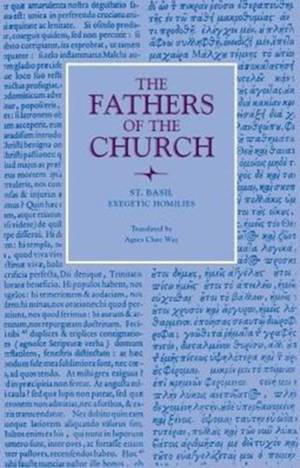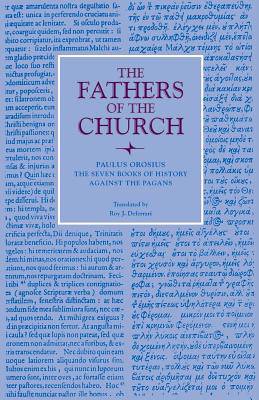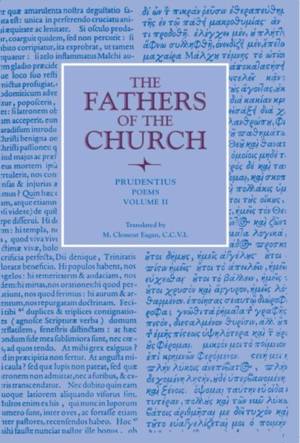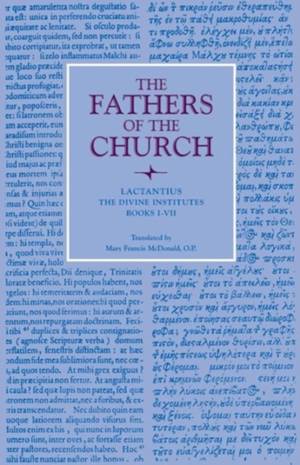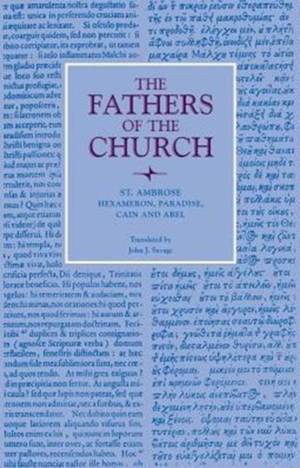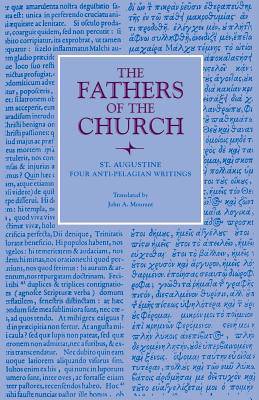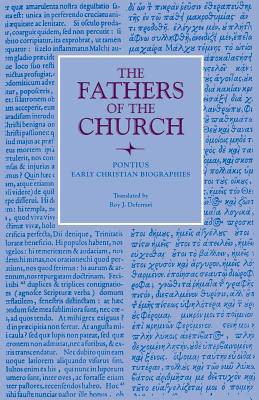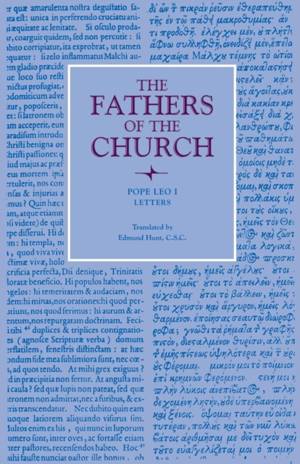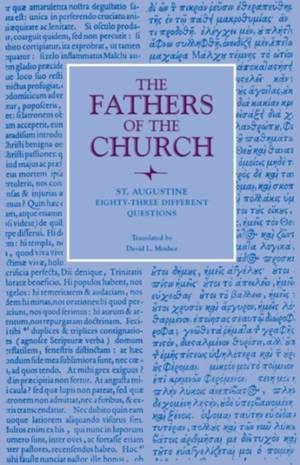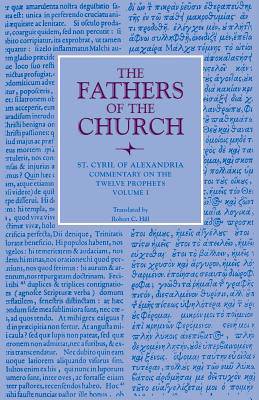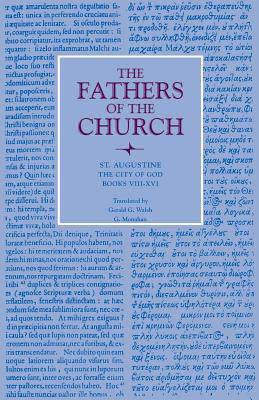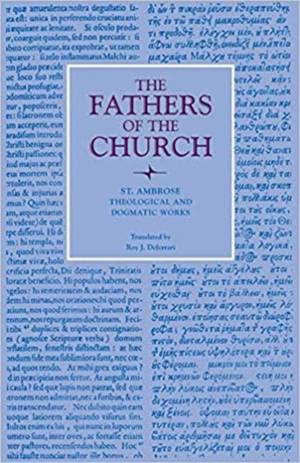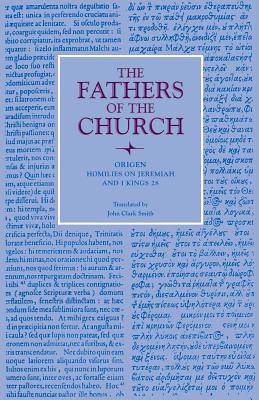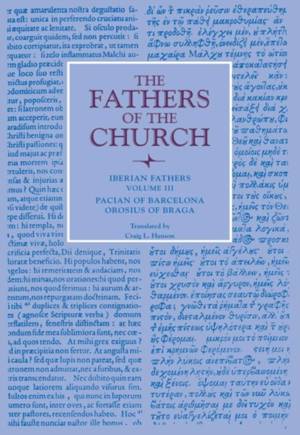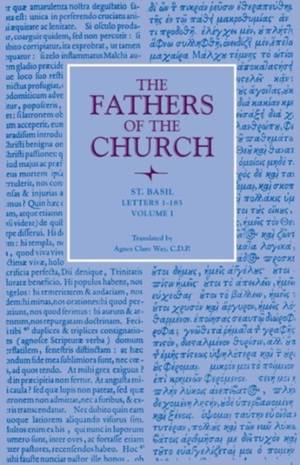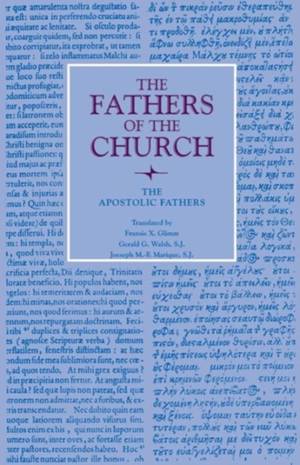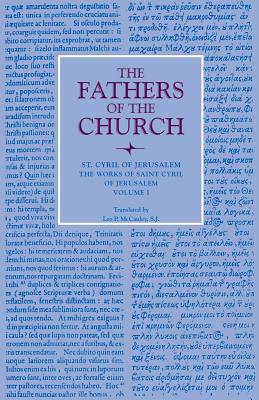
- Retrait gratuit dans votre magasin Club
- 7.000.000 titres dans notre catalogue
- Payer en toute sécurité
- Toujours un magasin près de chez vous
- Retrait gratuit dans votre magasin Club
- 7.000.0000 titres dans notre catalogue
- Payer en toute sécurité
- Toujours un magasin près de chez vous
Résultats pour "Fathers of the Church Patristic"
-
Exegetic Homilies
St Basil
- Livre broché | Anglais | Fathers of the Church Patristic
- In a relatively short life time St. Basil (ca. 330-379) bequeathed to posterity a rich literary heritage. He intended the nine homilies on the Hexaeme... Savoir plus
72,95 €Livraison 2 à 3 semaines72,95 €Livraison 2 à 3 semaines -
The Seven Books of History Against the Pagans
Paulus Orosius
- Livre broché | Anglais | Fathers of the Church Patristic
- Orosius wrote the first Christian Universal History, ""Historiarum adversus paganos libri septem."" It has been thought to be a supplement to the ""Ci... Savoir plus
72,95 €Livraison 2 à 3 semaines72,95 €Livraison 2 à 3 semaines -
Seven Exegetical Works
St Ambrose
- Livre broché | Anglais | Fathers of the Church Patristic
- St. Ambrose, Bishop of Milan A.D. 373-397, enjoyed a great contemporary reputation for his sermons and homilies, to whose eloquence St. Augustine of H... Savoir plus
72,95 €Livraison 2 à 3 semaines72,95 €Livraison 2 à 3 semaines -
Dogmatic and Polemical Works
St Jerome
- Livre broché | Anglais | Fathers of the Church Patristic
- St. Jerome's reputation rests primarily on his achievements as a translator and as a scriptural exegete. The important service that he rendered to the... Savoir plus
72,95 €Livraison 2 à 3 semaines72,95 €Livraison 2 à 3 semaines -
Poems, Volume 2
Prudentius
- Livre broché | Anglais | Fathers of the Church Patristic
- The poems of Aurelius Prudentius appear in two volumes of the present series, i.e., Volume 43 and this volume, 52. It cannot be said that poetry, in a... Savoir plus
72,95 €Livraison 2 à 3 semaines72,95 €Livraison 2 à 3 semaines -
The Devine Institutes, Books I-VII
Lactantius
- Livre broché | Anglais | Fathers of the Church Patristic
- Biographical data on Lactantius are meager. In his catalogue of illustrious men St. Jerome informs us that Lactantius studied under Arnobius. Acceptin... Savoir plus
72,95 €Livraison 2 à 3 semaines72,95 €Livraison 2 à 3 semaines -
Hexameron, Paradise, Cain and Abel
St Ambrose
- Livre broché | Anglais | Fathers of the Church Patristic
- Steeped in Greek Christian writings, Ambrose, Bishop of Milan in the fourth century, is known for (among other achievements) his allegorical exegesis ... Savoir plus
72,95 €Livraison 2 à 3 semaines72,95 €Livraison 2 à 3 semaines -
Christian Instruction; Admonition and Grace; The Christian Combat; Faith, Hope and Charity
St Augustine
- Livre broché | Anglais | Fathers of the Church Patristic
- The translated works in this volume have been dated variously either to the beginning or to the final decade of Augustine's career as Bishop of Hippo.... Savoir plus
72,95 €Livraison 2 à 3 semaines72,95 €Livraison 2 à 3 semaines -
Four Anti-Pelagian Writings
St Augustine
- Livre broché | Anglais | Fathers of the Church Patristic
- This volume brings together writings from early and late stages of Augustine's involvement in the Pelagian controversy. On Nature and Grace and On the... Savoir plus
72,95 €Livraison 2 à 3 semaines72,95 €Livraison 2 à 3 semaines -
Early Christian Biographies
Pontius
- Livre broché | Anglais | Fathers of the Church Patristic
- Most readers are quite likely to have some basic information about St. Cyprian (d. 258), St. Ambrose (ca. 339-397) and St. Augustine (354-430). Fewer ... Savoir plus
72,95 €Livraison 2 à 3 semaines72,95 €Livraison 2 à 3 semaines -
Letters
Pope Leo I
- Livre broché | Anglais | Fathers of the Church Patristic
- As the vestiges of the Roman political machine began to collapse in the fifth century A.D., the towering figure of Pope St. Leo the Great came into re... Savoir plus
72,95 €Livraison 2 à 3 semaines72,95 €Livraison 2 à 3 semaines -
Sermons, Volume 1 (1-80)
St Caesarius
- Livre broché | Anglais | Fathers of the Church Patristic
- Caesarius, Bishop of Arles in post-Roman Gaul from 503 to 543, served as the spiritual and administrative leader of an ecclesiastical province that pl... Savoir plus
72,95 €Livraison 2 à 3 semaines72,95 €Livraison 2 à 3 semaines -
Ascetical Works
St Gregory of Nyssa
- Livre broché | Anglais | Fathers of the Church Patristic
- In the Christian world of the fourth century, the family of St. Gregory of Nyssa was distinguished for its leadership in civic and religious affairs i... Savoir plus
72,95 €Livraison 2 à 3 semaines72,95 €Livraison 2 à 3 semaines -
Eighty-Three Different Questions
St Augustine
- Livre broché | Anglais | Fathers of the Church Patristic
- In the autumn of A.D. 388, St. Augustine returned from Italy to northern Africa. Here in his native Thagaste he assembled a monastic community. When t... Savoir plus
72,95 €Livraison 2 à 3 semaines72,95 €Livraison 2 à 3 semaines -
Commentary on the Twelve Prophets, Volume 1
St Cyril of Alexandria
- Livre broché | Anglais | Fathers of the Church Patristic
- Cyril, Bishop of Alexandria (412-444), is best known as a protagonist in the christological controversy of the second quarter of the fifth century. Re... Savoir plus
72,95 €Livraison 2 à 3 semaines72,95 €Livraison 2 à 3 semaines -
The City of God, Books VIII-XVI
St Augustine
- Livre broché | Anglais | Fathers of the Church Patristic
- This volume continues the translation of St. Augustine's monumental work The City of God, a product of his vast erudition. Three books in particular, ... Savoir plus
72,95 €Livraison 2 à 3 semaines72,95 €Livraison 2 à 3 semaines -
Commentary on the Epistle to the Romans, Books 6-10
Origen
- Livre broché | Anglais | Fathers of the Church Patristic
- This volume completes the first English translation of Rufinus's Latin version of Origen of Alexandria's Commentary on the Epistle to the Romans and c... Savoir plus
72,95 €Livraison 2 à 3 semaines72,95 €Livraison 2 à 3 semaines -
Theological and Dogmatic Works
St Ambrose
- Livre broché | Anglais | Fathers of the Church Patristic
- These four essays of Ambrose, the forceful and scholarly Bishop of Milan and the metropolitan of the churches of northern Italy in the late fourth cen... Savoir plus
62,95 €Livraison sous 1 à 4 semaines62,95 €Livraison sous 1 à 4 semaines -
Homilies on Jeremiah and I Kings 28
Origen
- Livre broché | Anglais | Fathers of the Church Patristic
- Souls existing before their bodies, witches summoning dead prophets from the underworld, the return of the damned--and the Devil himself--to God in th... Savoir plus
72,95 €Livraison 2 à 3 semaines72,95 €Livraison 2 à 3 semaines -
Iberian Fathers, Volume 3 Pacian of Barcelona, Orosius of Braga
Pacian of Barcelona, Orosius of Braga
- Livre broché | Anglais | Fathers of the Church Patristic
- In recent years historians and theologians have focused considerable attention on the church of late antiquity. The Constantinian revolution of the ea... Savoir plus
72,95 €Livraison 2 à 3 semaines72,95 €Livraison 2 à 3 semaines -
Letters, Volume 1 (1-185)
St Basil
- Livre broché | Anglais | Fathers of the Church Patristic
- The letters of St. Basil, three hundred and sixty-eight in number, which comprise the most vivid and most personal portion of his works, give us, perh... Savoir plus
72,95 €Livraison 2 à 3 semaines72,95 €Livraison 2 à 3 semaines -
The Apostolic Fathers
Apostolic Fathers
- Livre broché | Anglais | Fathers of the Church Patristic
- The name "Apostolic Fathers" was first applied in 1672 to a group of five writers who were taken either to have been in touch directly with some of th... Savoir plus
72,95 €Livraison 2 à 3 semaines72,95 €Livraison 2 à 3 semaines -
The Works of Saint Cyril of Jerusalem, Volume 1
St Cyril of Jerusalem
- Livre broché | Anglais | Fathers of the Church Patristic
- Cyril's life of some seventy years, placed in the very center of the fourth century, epitomizes much that was characteristic of the period and the loc... Savoir plus
72,95 €Livraison 2 à 3 semaines72,95 €Livraison 2 à 3 semaines -
Letters, Volume 4 (165-203)
St Augustine
- Livre broché | Anglais | Fathers of the Church Patristic
- The Letters appearing here in translation were written approximately between the years 410 and 420. This period in Augustine's life coincides with the... Savoir plus
72,95 €Livraison 2 à 3 semaines72,95 €Livraison 2 à 3 semaines





